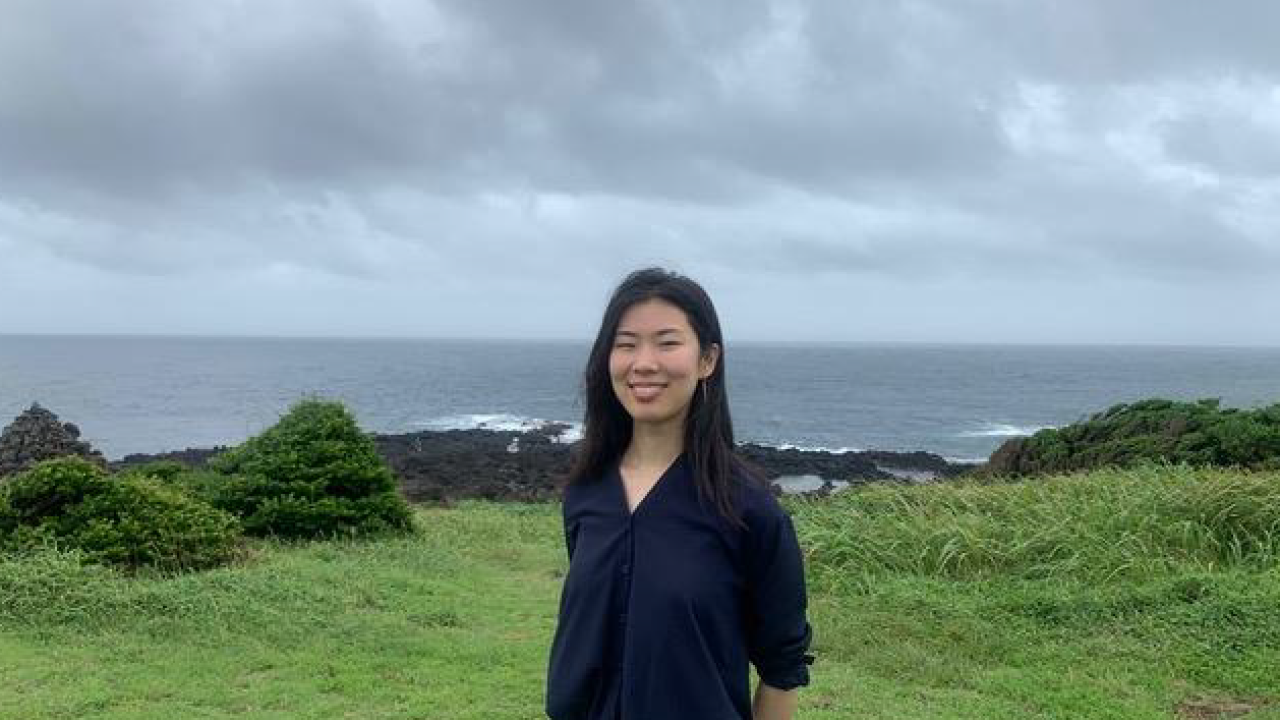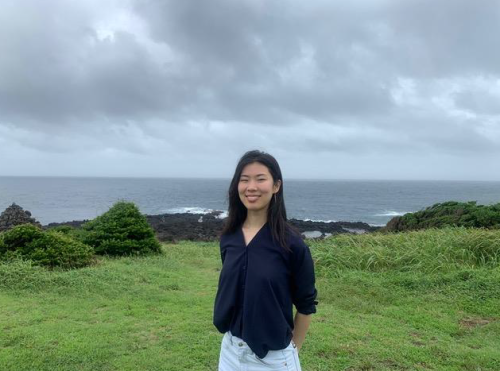
Alumni Perspectives: Redefining Leadership with Hannah Min
Embracing Your Identity as a Leader
Third installment of the article series called Alumni Perspectives. The series is designed to help the UCD Community understand the long-term impacts of CLL programs. UCD Alum, Hannah Min '23, reflects on how participation in a CLL Certificate Program shaped her identity as a leader. By stepping outside of her comfort zone, Hannah shares how beneficial it is to have your perspectives challenged and the power of embracing your values.
“Sometimes it’s a little difficult for me to talk on the spot,” prefaces Hannah, a current member of the National Health Corps. “Part of me shies away from conflict, difference, things I’m unfamiliar with… but being in the CLL program gave me the opportunity to engage with people who have different opinions. It gave me the opportunity to reflect on my own beliefs, including those about myself.”

When Hannah began her undergraduate career at UC Davis, she was already familiar with her individual strengths—namely, fostering positivity and connection. Yet, she didn’t see those strengths aligning with an official leadership title. “I felt like I didn’t fit into the mold of a stereotypical leader,” she admits. When it came to the Center for Leadership Learning, Hannah wasn’t sure how to approach their events, given her struggles of identifying with the traditional image of a charismatic and confident leader. Nonetheless, she decided to attend a few workshops.
“I realized the [CLL] program was an opportunity to learn more,” says Hannah. So, she joined the CLL’s certificate program, Cultivating Leaders for Social Change, to see what it had to offer.
Embracing YOUR Values
One of the lessons taught by CLSC covers nonverbal communication. While Hannah had experience in connecting with others verbally, she had not yet focused on how eye contact, an open posture, and facial expressions all play a role in how we share ideas with others. As a result, she observed that “the dialogues we had in CLSC helped me become more mindful. Even those small [nonverbal] changes helped me feel more confident in my ability to communicate and share space with people”.
In fact, when Hannah applied to the National Health Corps, she referenced the nonverbal activities she had done in the CLSC program, and she continues to maintain awareness of her body language when working with patients. “I've gotten feedback from people saying that they appreciate the energy and warmth I bring to the front desk because it helps them feel welcome and encourages them to return. I think that a lot of this is attributed to the way that we communicate with patients both verbally and non-verbally.”
For Hannah, making connections is not just a personal goal, but a professional one. “I wanted to take on a position where I would be connecting with others,” she says, explaining her ultimate goal of becoming a physician. Since being selected to serve at the HealthRight 360 Integrated Care Center, Hannah’s duties include connecting patients to providers, following up with people on their care, and finding resources for people’s various individual needs. “We are aware that a lot of our patients may be at more vulnerable points of their lives, but we’re here to provide resources and support,” says Hannah. Part of that support means active listening. “We [want to] communicate with others so they feel more open and comfortable.”
Here, Hannah’s personal leadership style comes into play as she utilizes her strengths: she harnesses a positive attitude to reframe situations and creates a safe space for patients. She pushes through her initial discomfort of unfamiliar situations because she knows that by making the effort to show active engagement with her patients, she can ease their own discomfort. “There are lots of factors that can influence how someone feels on a particular day,” says Hannah. Whether it be their physical health or matters such as housing status, family life, and employment difficulties, “we like to ask about what other things might impact how someone is coming into the clinic.”
While Hannah had not initially associated these skills—connecting with others, maintaining steadfast optimism—with a traditional leader, her experiences at the health clinic proved how foundational those abilities are in helping people get the care they need.
“Multiple Perspectives”
Hannah’s consideration of various impacts to one’s health reflects more broadly on her clinic’s commitment to holistic care. “Holistic care champions the idea that healthcare is really linked to wellness in general,” says Hannah, “and there are multiple facets that contribute to someone’s ability to live a healthy life.”
This recognition—that everyone comes from a unique starting place, with their own set of circumstances—also reflects one of the core components of the CLSC program, which promotes dialogue about different perspectives. “The topics that we talked about in CLSC were also brought up in the National Health Corps, so I found there was a lot of overlap [. . .]. CLSC really helped create a basis for me to continue building on these ideas.”
Just as there are multiple facets to one’s overall health, Hannah notes there are multiple facets to leadership. “A concept that CLL has helped solidify in my mind is that we don't need to have an official title [. . .] to be a leader or demonstrate leadership. Every day, [. . .] I am speaking with providers and staff who have their own strengths as different kinds of leaders. Some people have the knowledge and experience to be able to navigate and guide others in complex and time-consuming cases, while others are confident in their ability to de-escalate and take charge in demanding moments of crisis.”
Within CLSC, students had discussions about what leadership means to them, and Hannah found her personal definition of a leader to be “someone who is able to empower and unite others toward a shared goal”. From this perspective, Hannah has been able to embrace her identity as a leader. She empowers others by “helping people secure stability in their lives” which she accomplishes through her clinic. In addition to providing primary care, the clinic offers a variety of other services such as case management, support groups, and nutritional consulting, the aim of which is to educate people on how they can take steps to better their health.
Growing into Leadership
Knowing your own definition of leadership and living up to those values can take time, however.
“How I view myself as a leader is going to be something that continually changes,” Hannah acknowledges. “The leader I considered myself to be two years ago is not the same leader I view myself to be today.”
For other students who are just beginning their professional or leadership journey, Hannah adds that “it’s okay to take things step by step, especially when the big picture can become overwhelming. Starting on one goal is less intimidating than attempting everything all at once.”
This step-by-step perspective also serves as a reminder that leadership is a process and not a status. “It was the lessons I learned, rather than the image I had of myself, that compelled me to take the position [at the National Health Corps],” Hannah explains. Treating the unfamiliar as a learning opportunity, instead of a knowledge test, helped Hannah shake that initial fear and take on new roles. When it came to applying for the National Health Corps, for example, she was motivated by her desire to cultivate the skills needed to become a more knowledgeable and compassionate physician.
While a multitude of factors ultimately contributed to where she is today, Hannah kickstarted her journey by deciding to attend a CLL workshop. She took a step outside of her comfort zone, because, as she deftly puts it, “the best way to develop and solidify your beliefs is to have them challenged”.
------------------------
For more information on our certificate programs and workshops, see the Complete a Certificate page and the Participate in a Workshop page of our website.
The CLL’s “Alumni Perspectives” series has two purposes: (1) to help current undergraduates better understand the purpose and the long-term impacts of our program, and (2) to highlight past CLL members who admirably dedicate their time to developing themselves and others as leaders.
